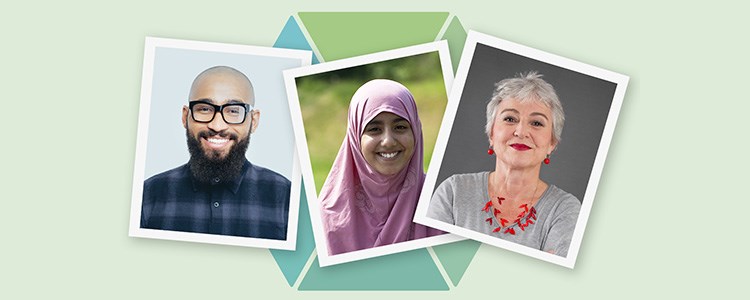Equal partners in care

Equal partners in care
How many people did you talk to yesterday? From a simple “hello” to world changing conversations you probably spoke with more people than you realise. It is possible that around 20% of the people you spoke to yesterday were (unpaid) carers. Colleagues, patients, friends, shop assistants, older people, children – anybody, of any age, can be a carer. Indeed, although you might never have thought about it, you too might be a carer, juggling your role with caring for a friend, relative or neighbour.
Identifying carers is not as easy as you might think. People rarely use the word “carer” to describe themselves and often see the care they provide as “just something you do”. The Carers (Scotland) Act 2016, says that you are a carer if you provide (or intend to provide) care for another person. This might include shopping, providing emotional support and/or personal care, organising prescriptions and medications, cooking meals, supporting attendance at appointments… the list goes on. How many of the people you spoke to yesterday are doing these things for another person?
A caring role can be a rewarding, positive experience. However, it is also important to recognise the impact caring can have. In the last year this has been magnified:
- 45% of young carers say their mental health is worse (Carers Trust Scotland, 2020)
- 69% of young carers say they are more stressed (Carers Trust Scotland, 2020)
- 74% of carers say they are exhausted and worn out (Carers UK, 2020)
The Carers (Scotland) Act 2016, is focussed on improving the health and wellbeing of carers and ensuring that, if they wish to continue caring, they can do so alongside having a life of their own. Sometimes you might need to walk alongside somebody as they realise they are a carer; but by building trust and through good conversations, you can help improve the lives of sons, daughters, cousins, partners, husbands… of any age, living in any community
Many carers do not realise they have rights or that support is available. Sometimes, just by letting carers know these two things you can make a difference. NHS inform has useful information for unpaid carers and where they can obtain advice and support.
Identifying carers and then having a good conversation with them are critical steps to being able to work meaningfully with carers as equal partners.
If you want to learn more, Equal Partners in Care is the learning resource for you. The animation is a great place to start and an eLearning module is on its way. Look out for new resources being added.
Be the person who makes a difference to carers – get started today: Visit Carers on Turas Learn.
Note: You will need a Turas account to view and access some of the resources. If you don’t have an account, you can register here.
References:
June, 29 2021
